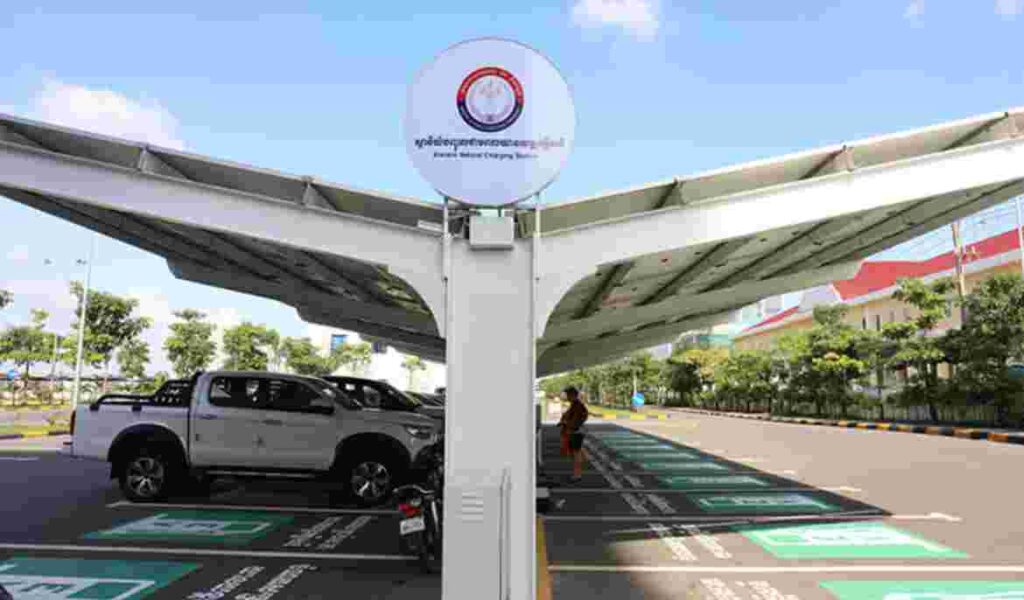As Cambodia charts its path toward a more sustainable future, the streets of Phnom Penh are witnessing a quiet yet significant revolution. Electric vehicles (EVs), once a rare sight, are increasing on Cambodian roads.
With the government’s commitment to reducing carbon emissions and the global shift towards cleaner energy, the question arises: Can electric vehicles replace traditional internal combustion engines (ICE) in Cambodia?
In 2023 the total number of EV’s registered in Cambodia reached 1,335, more than double from the 663 registered in 2022, and an even more staggering jump in numbers from the preceding year of 2021 in which there were only 63.
This surge can be attributed to several factors, including government incentives, increasing environmental awareness, and technological advancements in battery and charging infrastructure.
Earlier this year on July 11, the National Policy on the Development of Electric Vehicles was released stating its proposed goal of 770,000 EVs on the road by 2030 equating to roughly 10 percent of the current 7.75 million vehicles registered in Cambodia today.
In aiding the country towards this goal, the Cambodian government has implemented various initiatives to encourage the adoption of electric vehicles. In 2021, the Ministry of Economy and Finance introduced a tax exemption for electric vehicle imports, making them more affordable for consumers.
Additionally, the government is investing in charging infrastructure, with plans to install charging stations throughout major cities and along highways. Government policies play a critical role in shaping the market for electric vehicles by reducing financial barriers and investing in necessary infrastructure, the country can accelerate the transition to electric mobility.
“The private sector sits in the driving seat of the EV revolution, while the government plays a central regulatory and enabling role,” Natharoun Ngo Son, Country Director of EnergyLab, told Khmer Times.
Natharoun went on to say that the most important factors in the adoption of electric vehicles will be trust in the current and upcoming EV brands, service providers, the reliability of the infrastructure such as charging station networks and the stability of the whole grid to generate and supply electricity to charging points.
Despite the positive momentum, several challenges could hinder the widespread adoption of electric vehicles in Cambodia. One significant barrier is the limited charging infrastructure, particularly in rural areas.
While urban areas like Phnom Penh are seeing rapid development of charging stations, rural regions remain underserved. For EVs to truly replace internal combustion engines, the country needs a robust charging network that reaches all corners of the country.
Additionally, the initial cost of electric vehicles remains a concern for many potential buyers. While government incentives help alleviate some financial burdens, many Cambodians still view EVs as a luxury rather than a necessity.
As the world moves towards a more sustainable future, the question remains about Cambodia’s readiness. It seems that while the transition is underway, it will require concerted efforts from the government, private sector, and consumers alike.
Achieving this vision requires a collaborative effort among all stakeholders—government, businesses, and citizens.
Source: khmertimeskh



